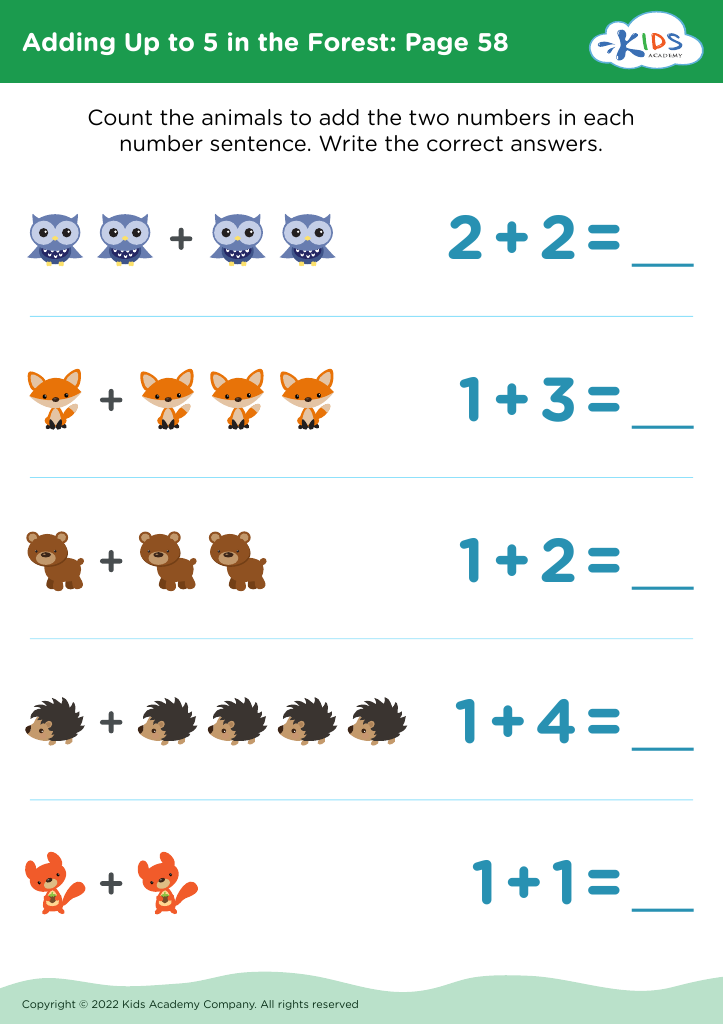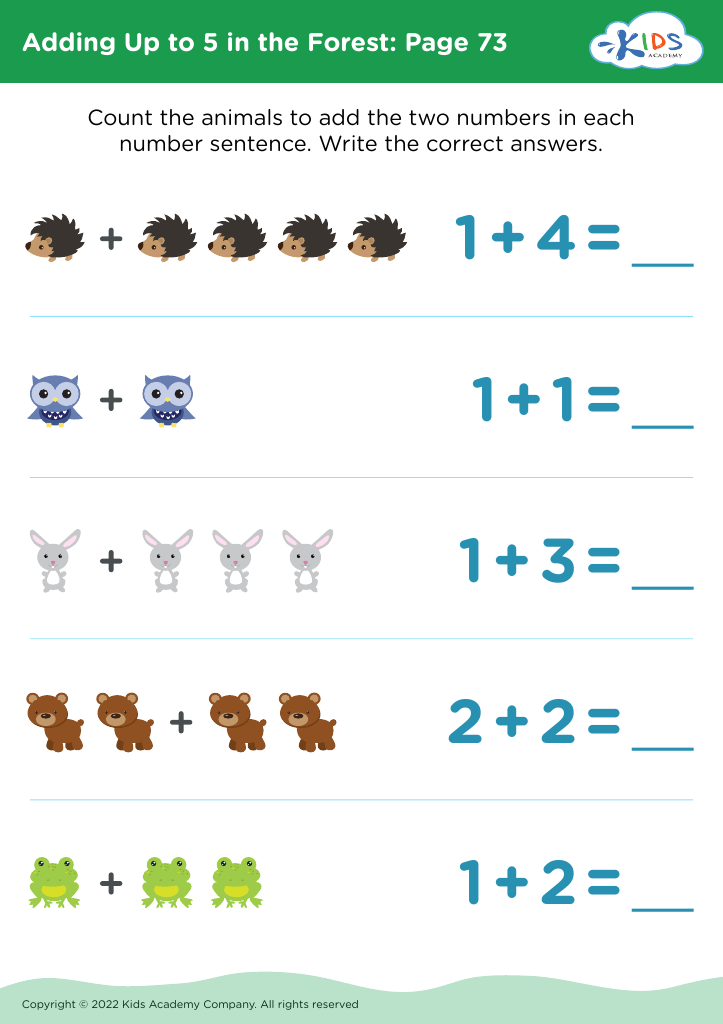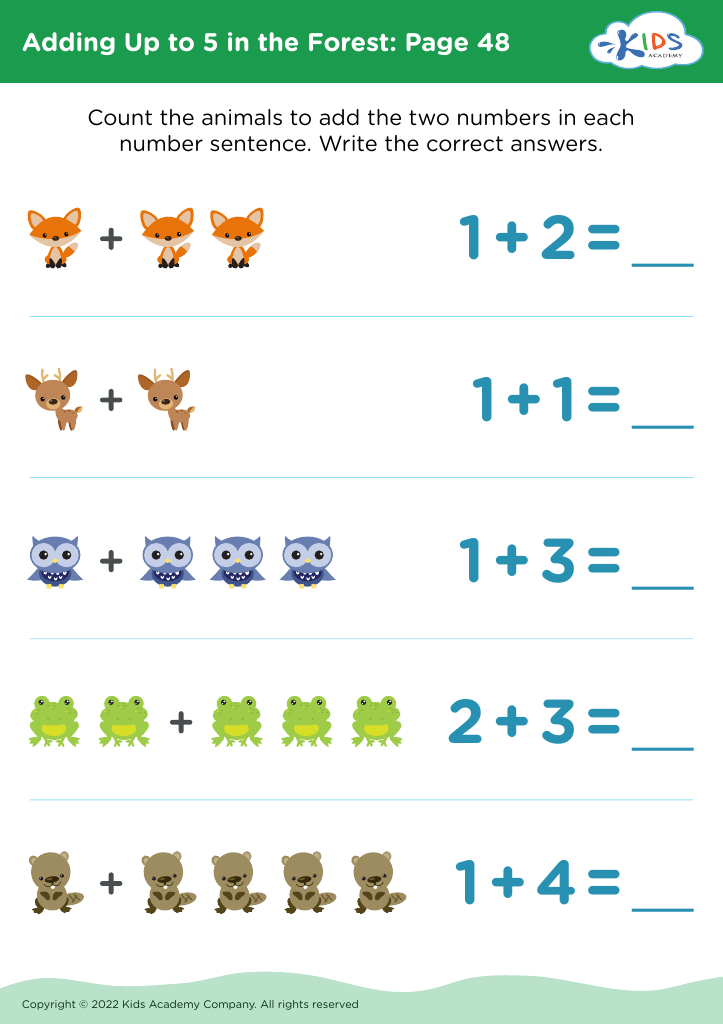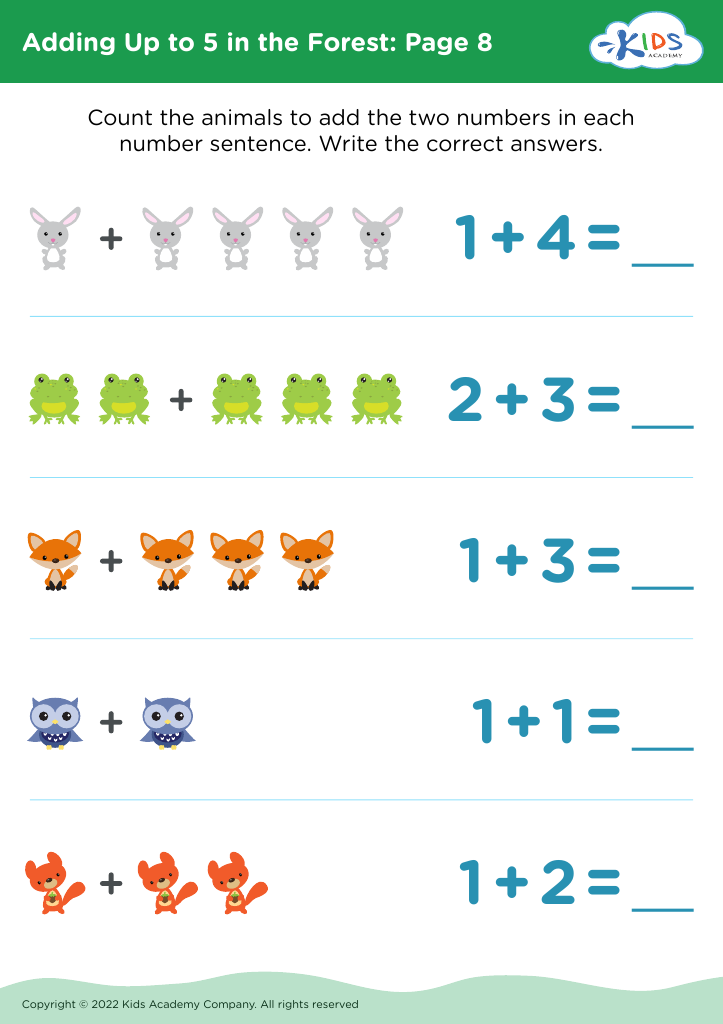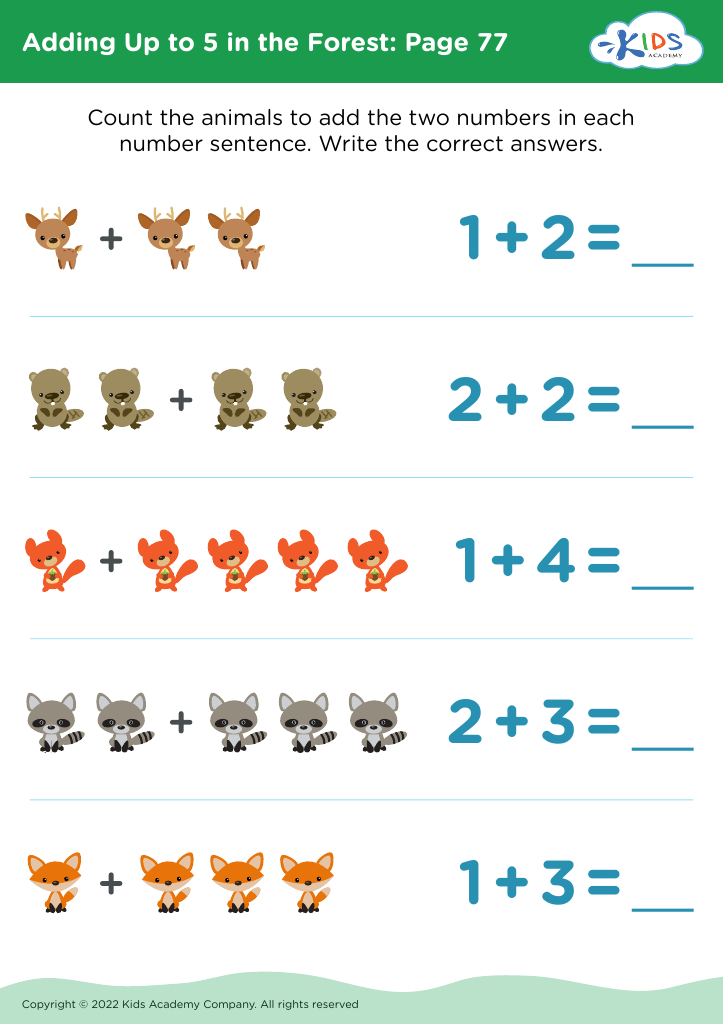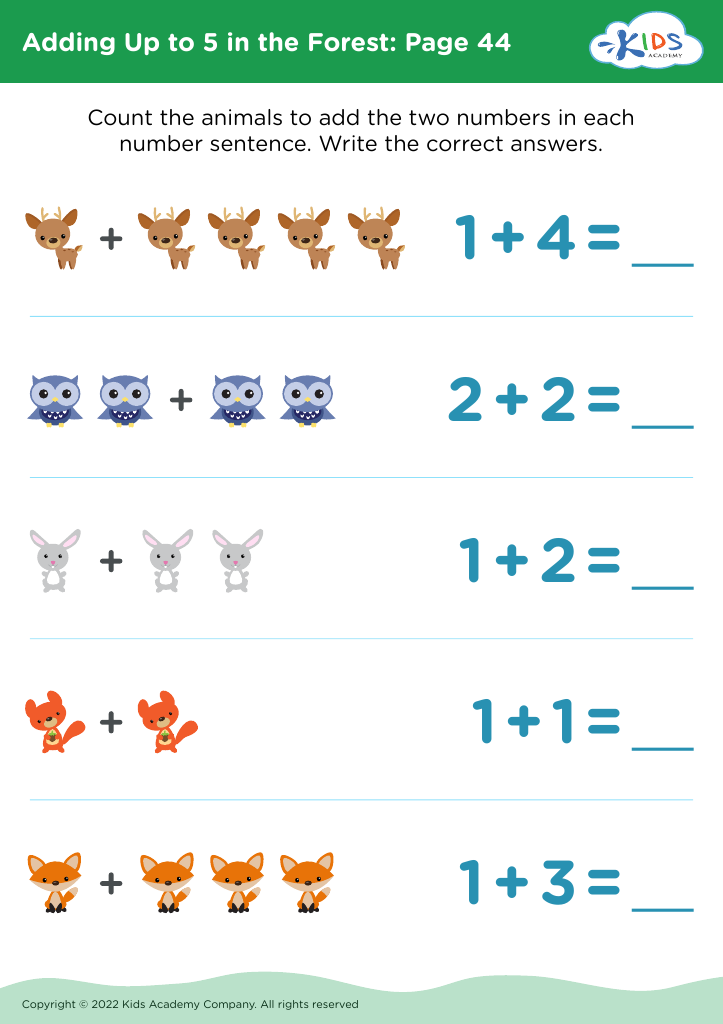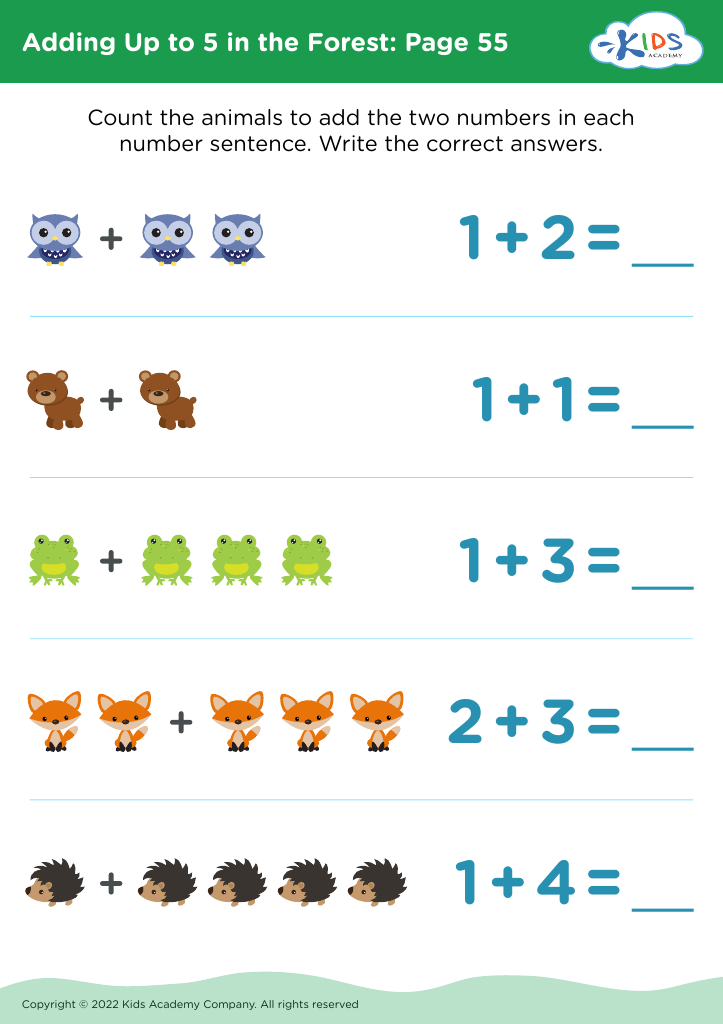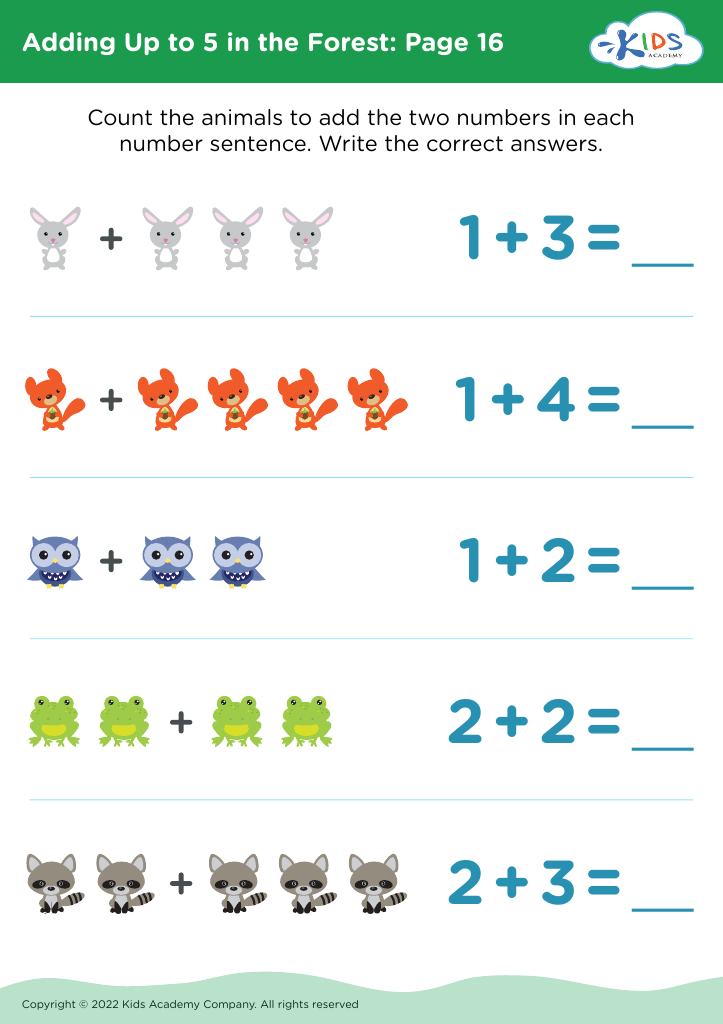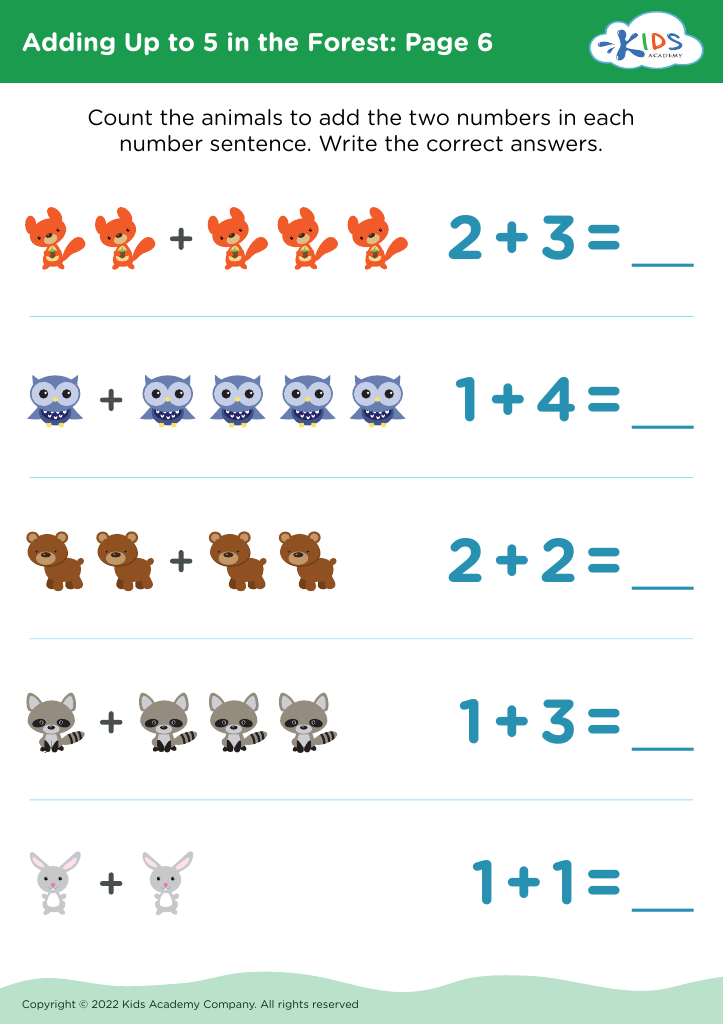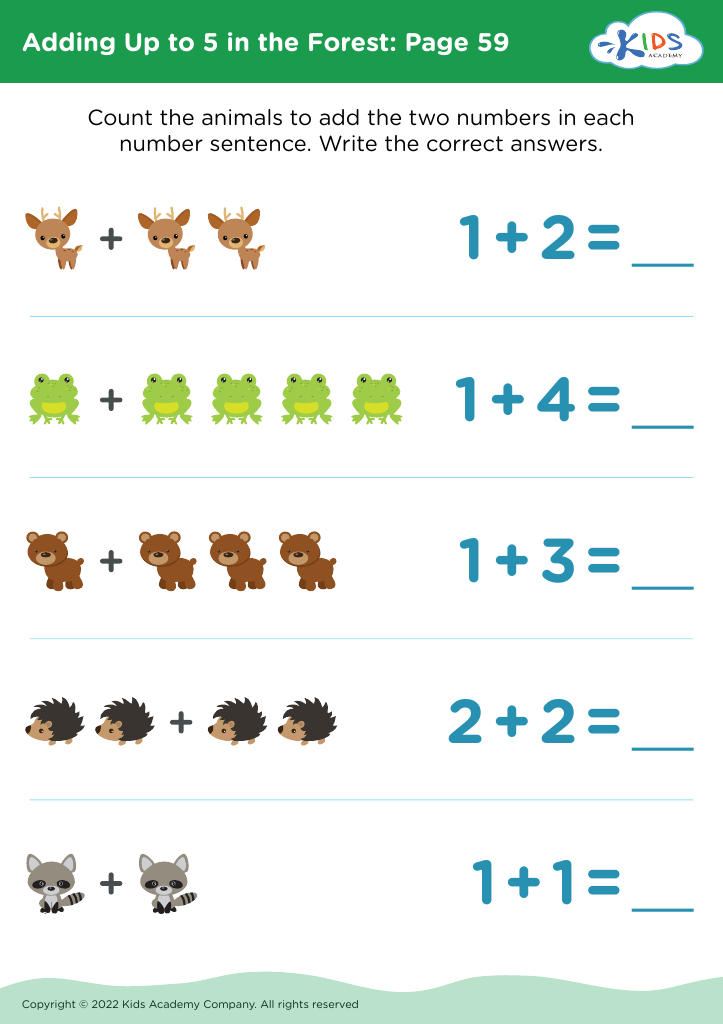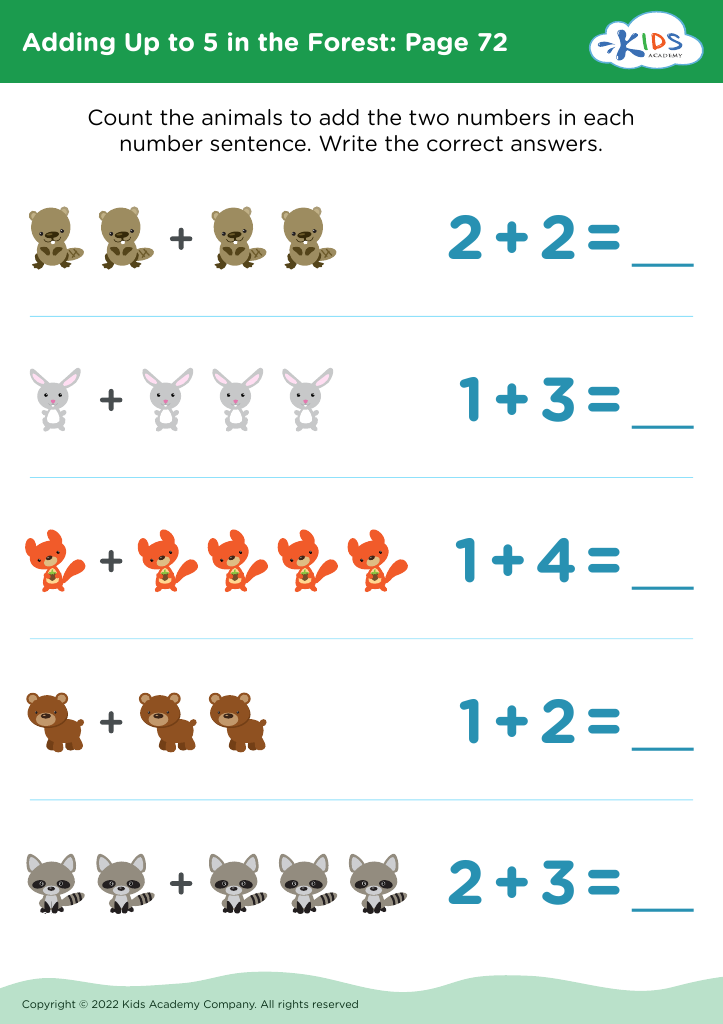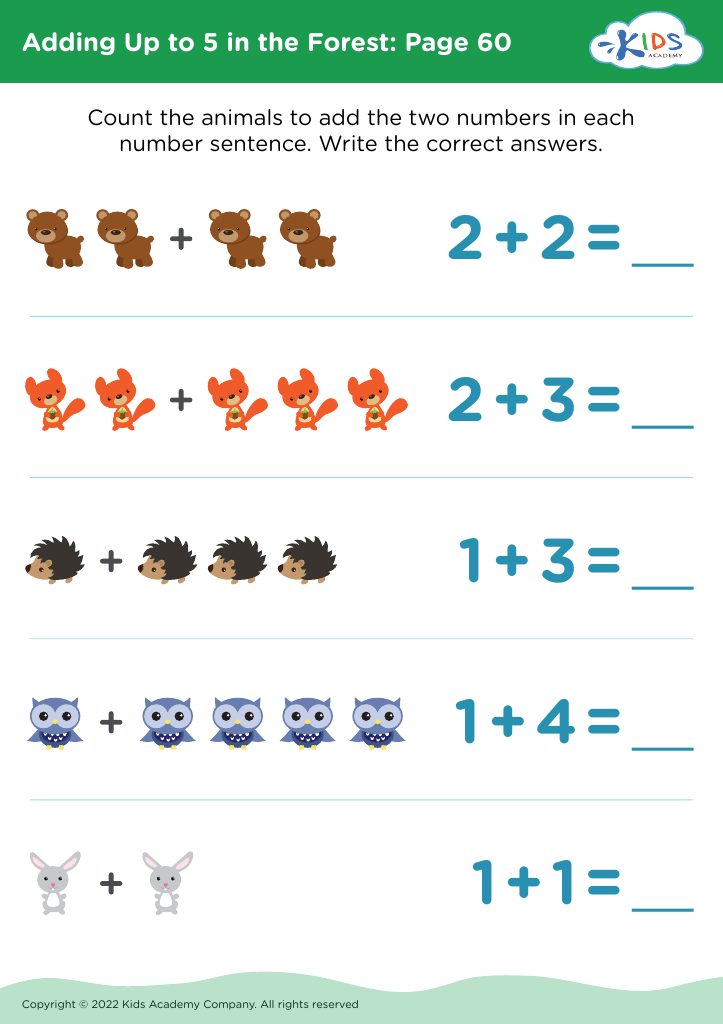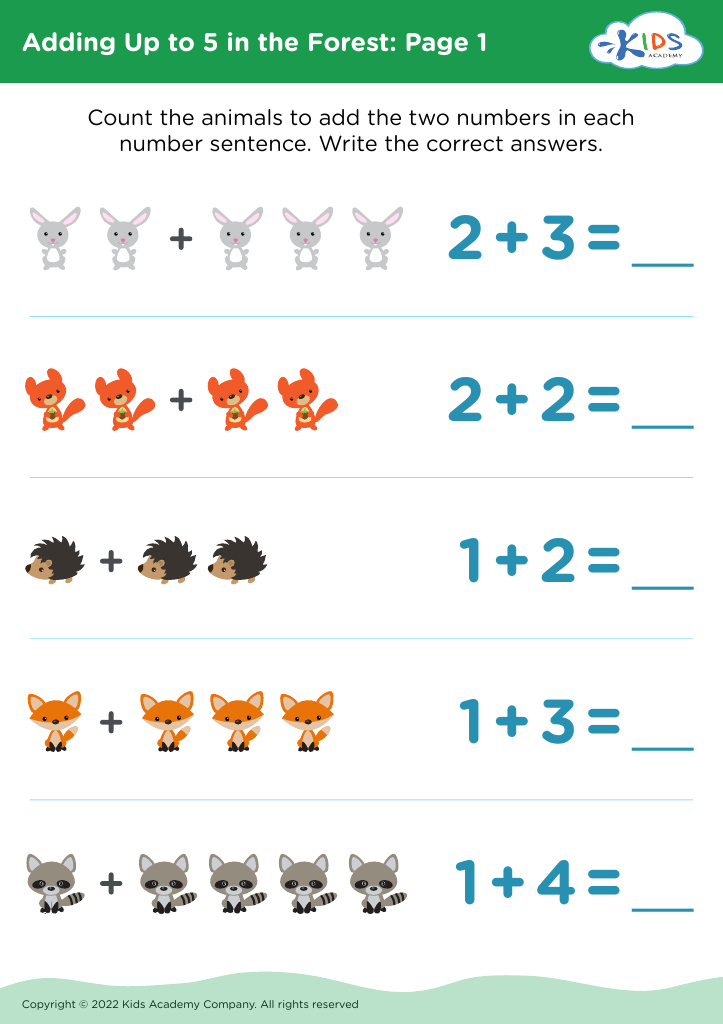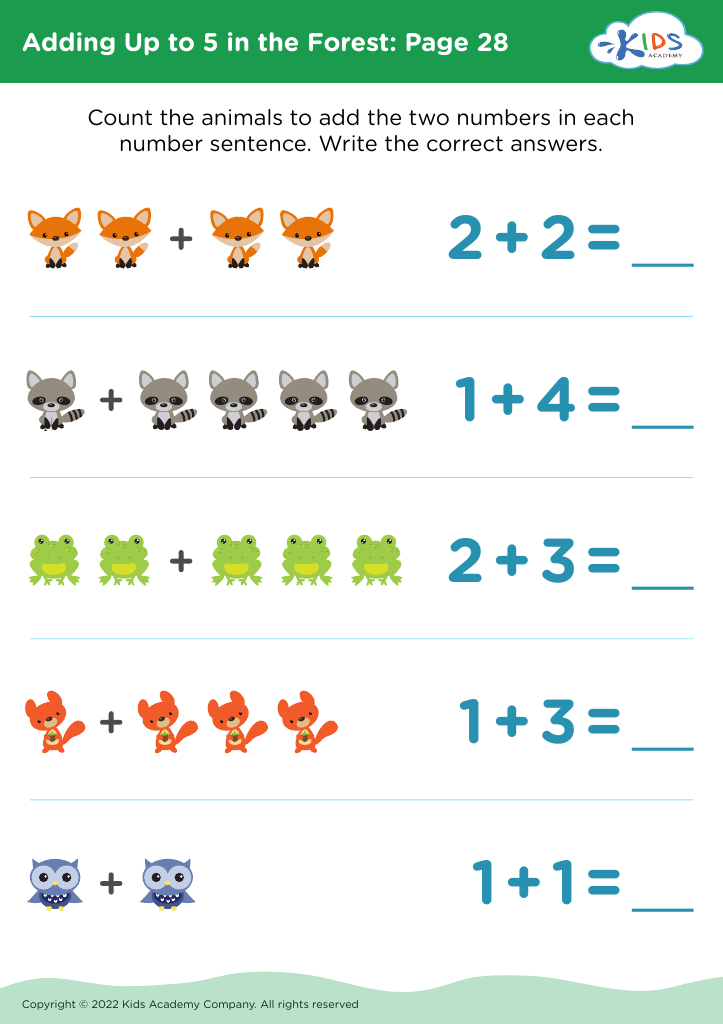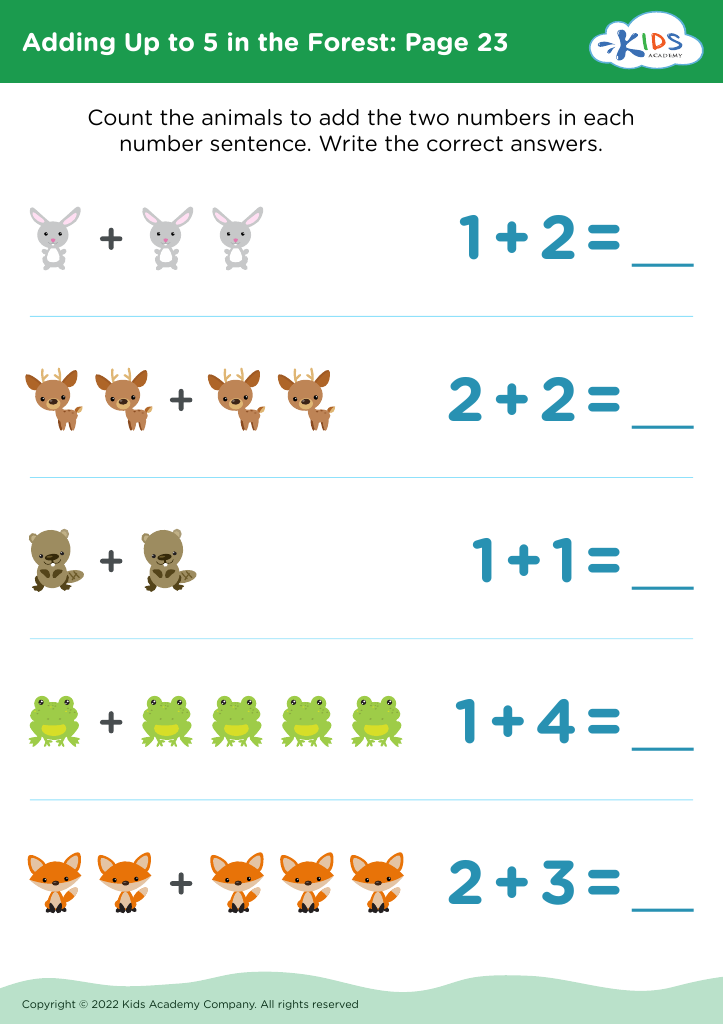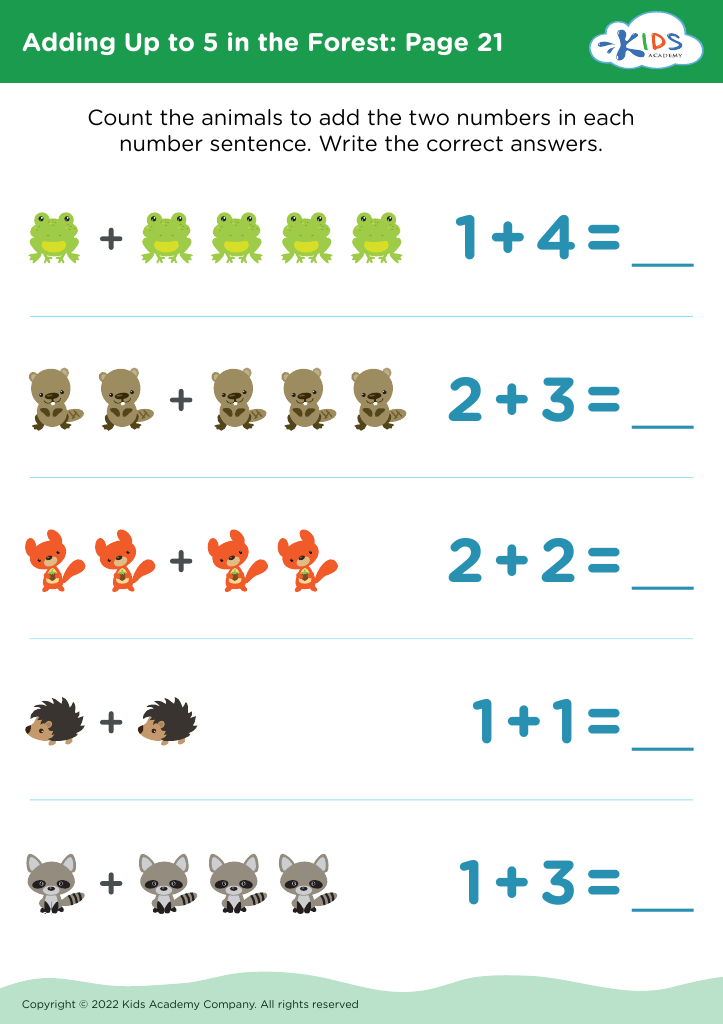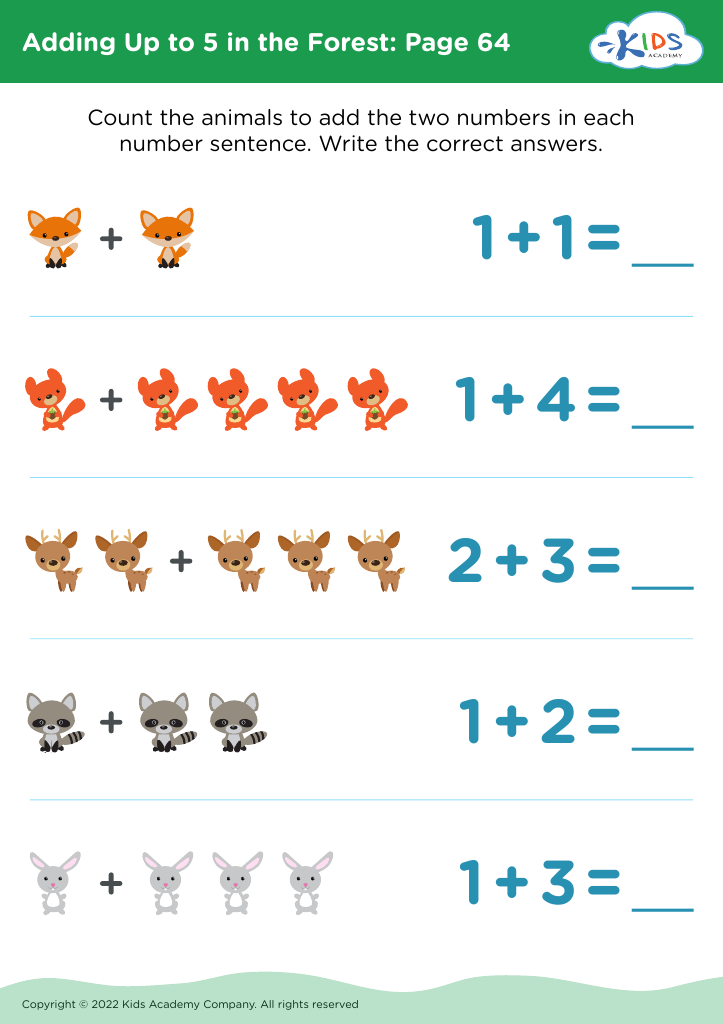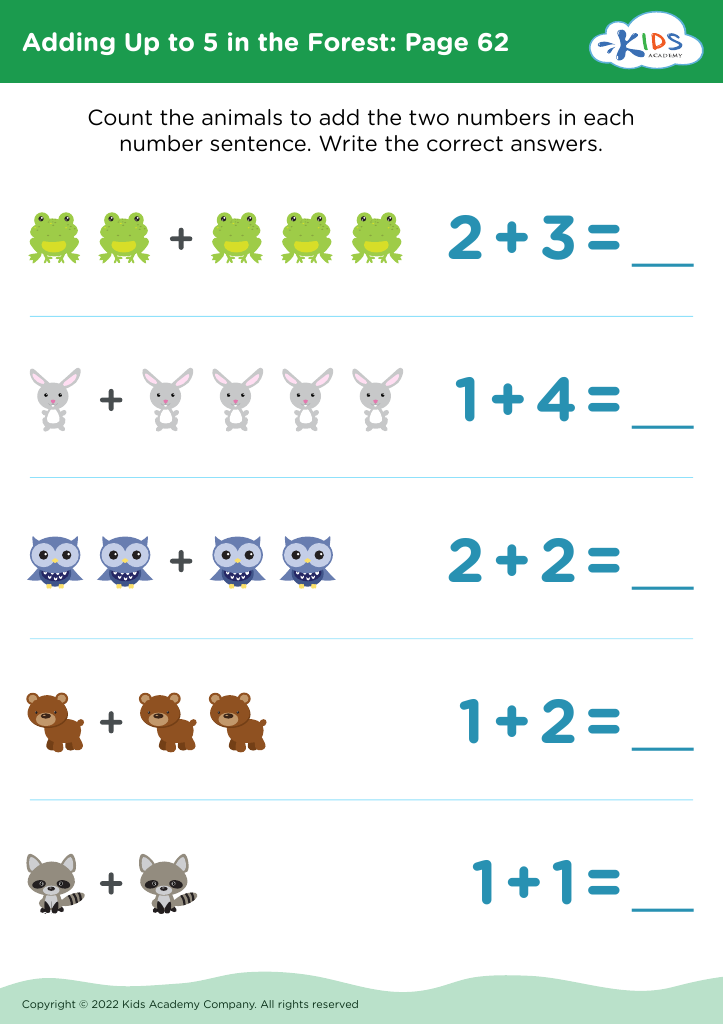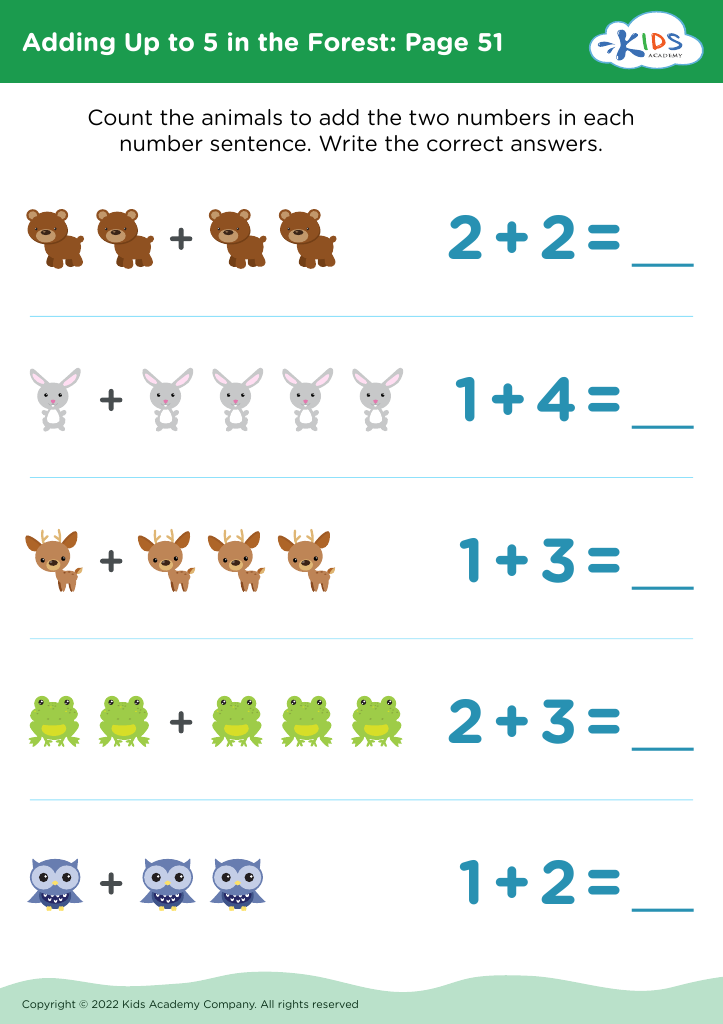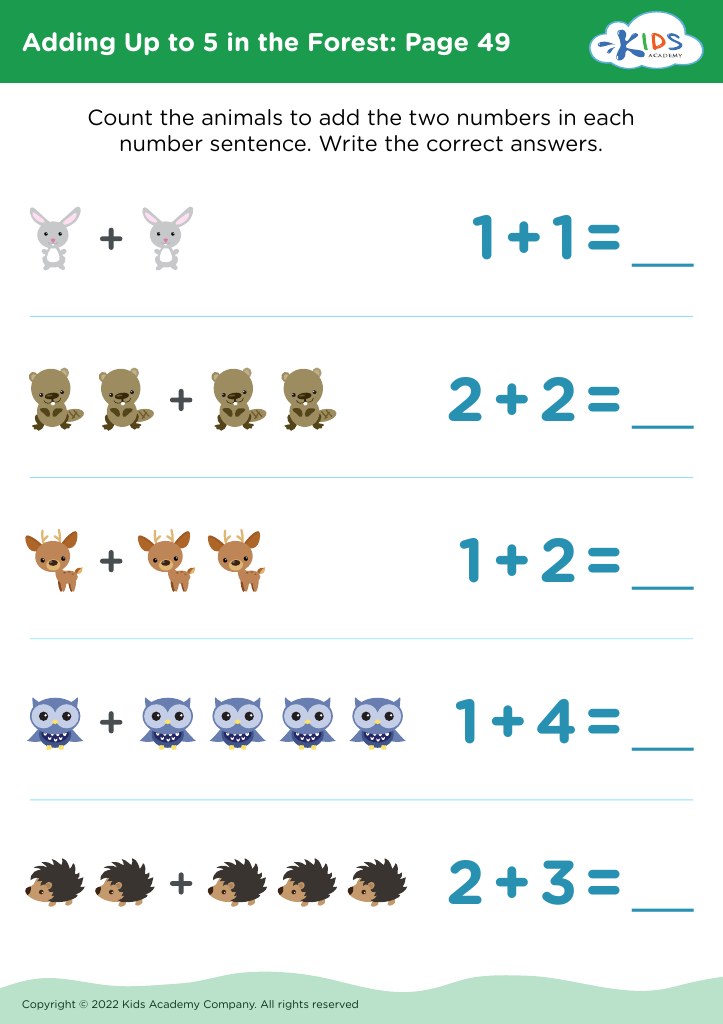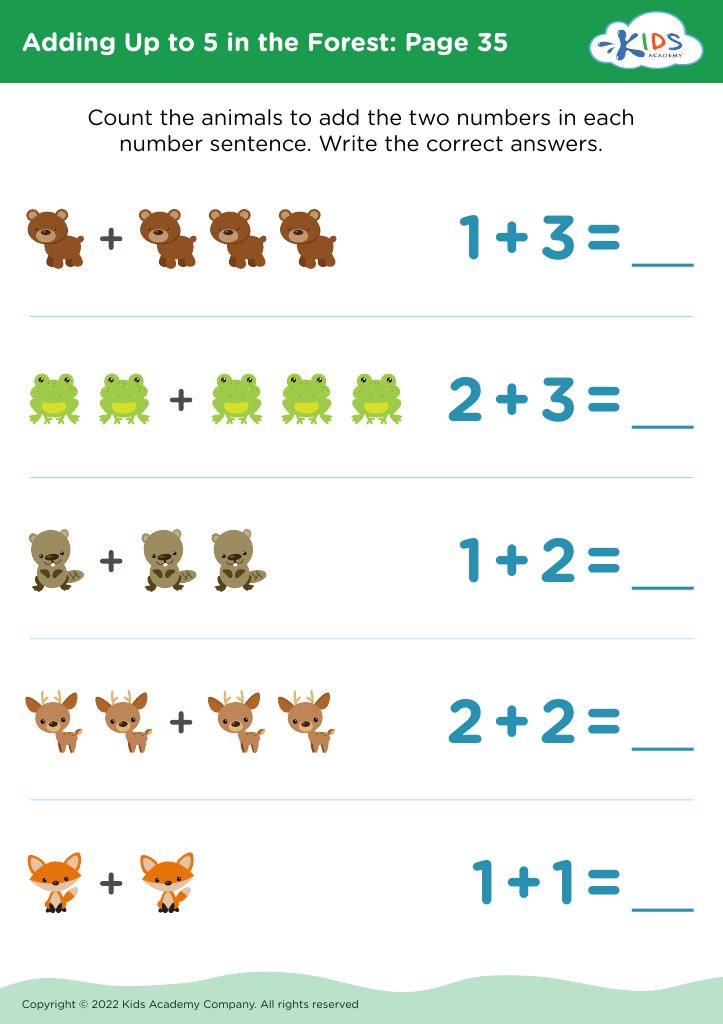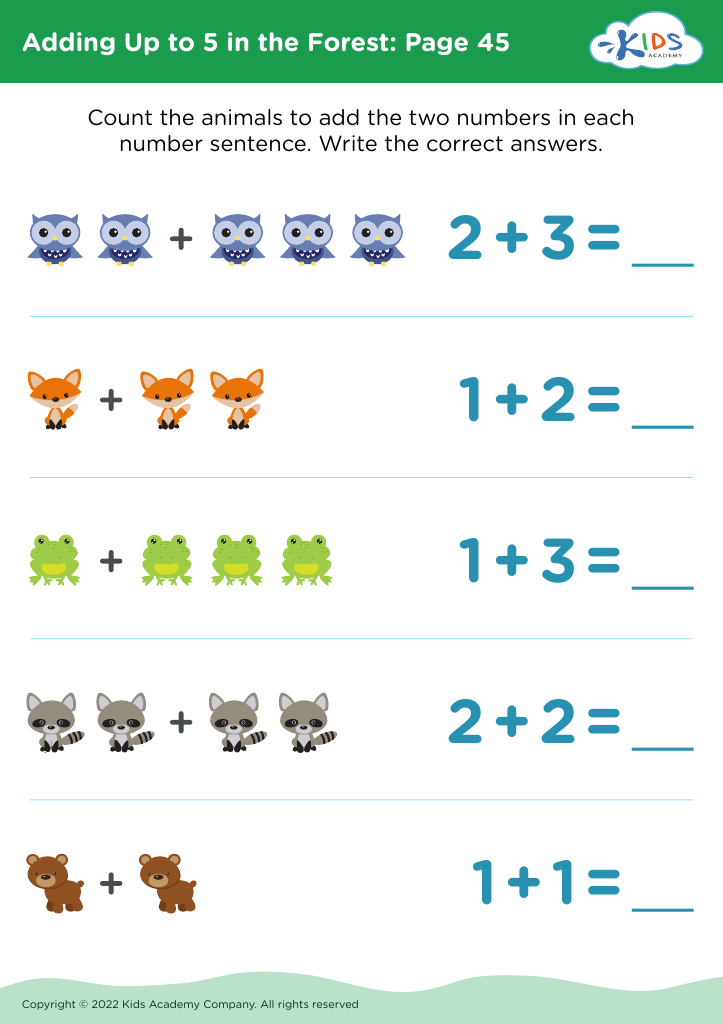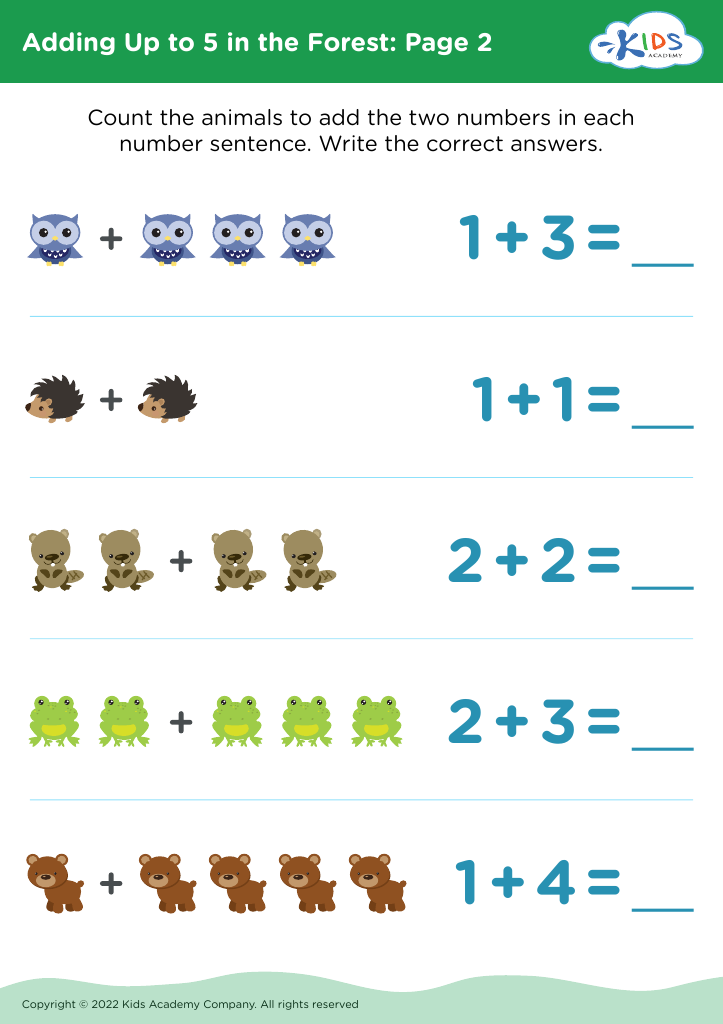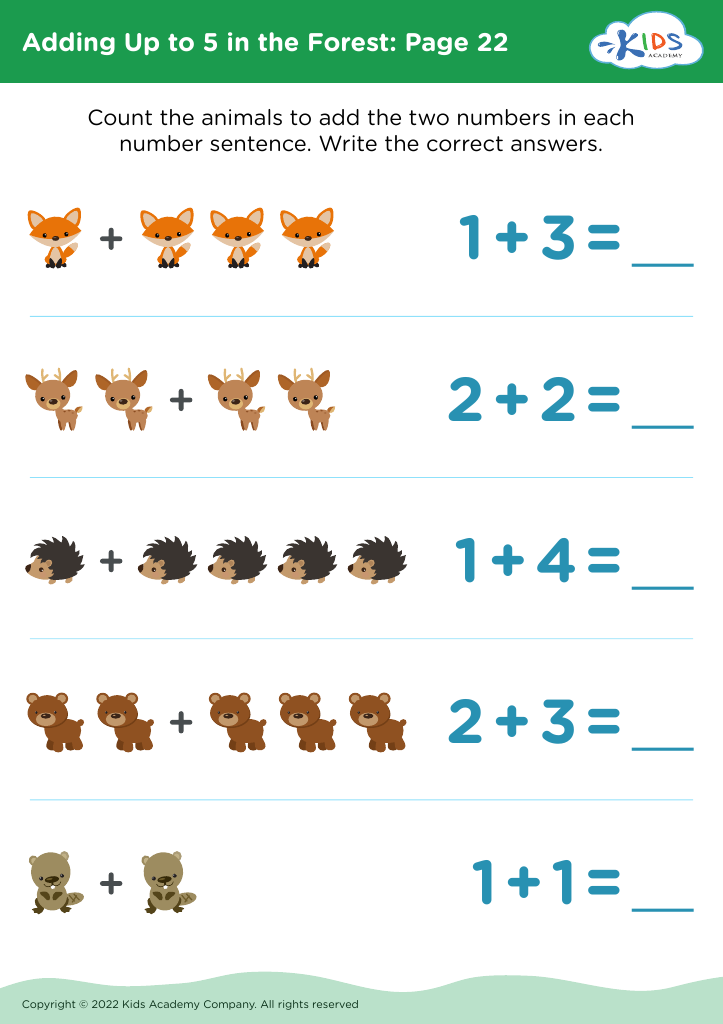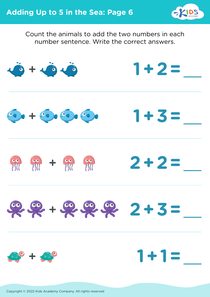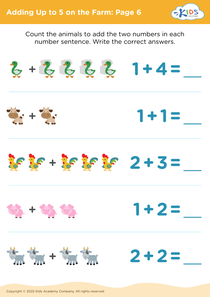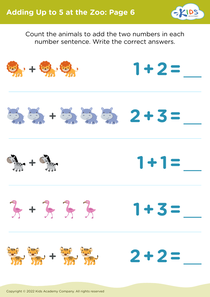Adding in the Forest Worksheets for Ages 5-9
77 filtered results
-
From - To
Explore the magical world of math with our "Adding in the Forest Worksheets for Ages 5-9"! Designed to engage young learners, these vibrant and captivating worksheets bring addition to life through enchanting forest-themed activities. Each page is carefully crafted to help children develop their addition skills while igniting their imagination through fun and interactive problems featuring woodland animals and picturesque scenery. Perfect for both classroom settings and home learning, our worksheets offer a delightful and educational experience that makes mastering math a woodland adventure! Unlock your child's mathematical potential with our unique and charming forest-themed addition worksheets.
"Adding in the Forest," an engaging book designed for children aged 5-9, serves as an excellent educational tool that parents and teachers should embrace for multiple reasons. At this critical age, children are developing foundational math skills, and the book creatively integrates learning with a captivating storyline that keeps young minds interested. The forest theme is particularly effective; the natural imagery, combined with relatable animal characters, cultivates a love for both mathematics and the environment.
By using familiar elements of nature, the book aids memory retention; children can more easily recall mathematical concepts through the visual and contextual cues provided by the forest setting. This approach transforms abstract numbers into tangible, meaningful experiences.
Additionally, stories like this support different learning styles. Visual learners benefit from colorful illustrations, auditory learners from reading the story aloud, and kinesthetic learners from interactive activities within the book. This book thereby fosters a richer, more inclusive learning environment.
Parents and teachers will find that "Adding in the Forest" also encourages critical thinking and problem-solving skills. It aligns with many educational standards, emphasizing the importance of early math literacy in a manner that feels more like play than work. Essentially, it bridges the gap between education and enjoyment—a perfect recipe for fostering a lifelong love of learning in young children.

